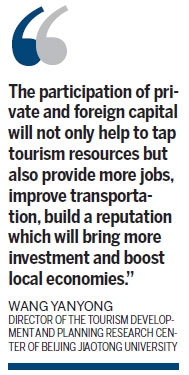The WSJ reports,"Hong Kong's pro-democracy forces got a shot in the arm from a day of marches and a night of protests in the city, raising the possibility of more demonstrations later this year.
Police arrested 511 people at an overnight sit-in in Hong Kong's Central business district Wednesday morning after thousands of protesters—organizers estimated 510,000, while police said the crowd hit 98,600 at its peak—marched across the city on Tuesday on the anniversary of Hong Kong's handover to China".
Participants in the sit-in on Central's Chater Road, organized by the pro-democracy Hong Kong Federation of Students, said that despite the arrests they felt encouraged by the demonstration, which they deemed a success.
"We are more hopeful now," said Jack Lee, a Hong Kong University student who participated in the Chater Road protest but wasn't arrested. "We have sent a clear message to all Hong Kong people, that civil disobedience can be peaceful and rational."
The protests center on whether Hong Kong voters will be given a mechanism for nominating candidates for chief executive, the city's top post, in the 2017 elections. While the government has committed to realizing what it calls universal suffrage in chief executive elections by that year, it is unclear whether that reform will include a robustly democratic nominating process.
At stake, besides Hong Kong's electoral process, is the city's relations with Beijing, which takes a dim view of democratic advocacy. A front-page editorial in Communist Party mouthpiece People's Daily on Wednesday said that self-governance in Hong Kong "has always had clear boundaries and standards, namely that Hong Kong should be mainly governed by Hong Kongers who love their country."
In addition to the Chater Road sit-in, a separate overnight protest was held in front of the offices of the chief executive by a different student group called Scholarism. The protest ended around 9 a.m. Wednesday without any arrests, that organization said.
"We expect further escalation of our movement such as more protests to encircle the chief executive's offices in coming months," said Mr. Lau.
The showdown on Chater Road was foreshadowed early Wednesday by the police, who said they would start to clear the protesters from the area before dawn. Organizers called for protesters to remain on the road until 8 a.m. By 3:30 a.m., police were slowly carrying individual protesters off the street and loading them onto waiting buses. Some of the protesters shouted and struggled as police carried them off, while others walked or were carried silently. Wheelchairs were also used to move the protesters. Police held signs over the crowd telling them to board the buses.
The protesters have yet to be formally charged. Protest organizers said that that the arrested demonstrators were taken by bus to a police college in Wong Chuk Hang, on the south side of Hong Kong Island, where organizers called for more protesters to gather Wednesday afternoon. The police spokeswoman declined to comment on where the protesters were taken.
Organizers say this may not be the last instance of civil disobedience in Hong Kong this year. "The stronger the oppression from the authorities, the stronger the rebound from the public," said Joshua Wong, a leader of the Scholarism group.

